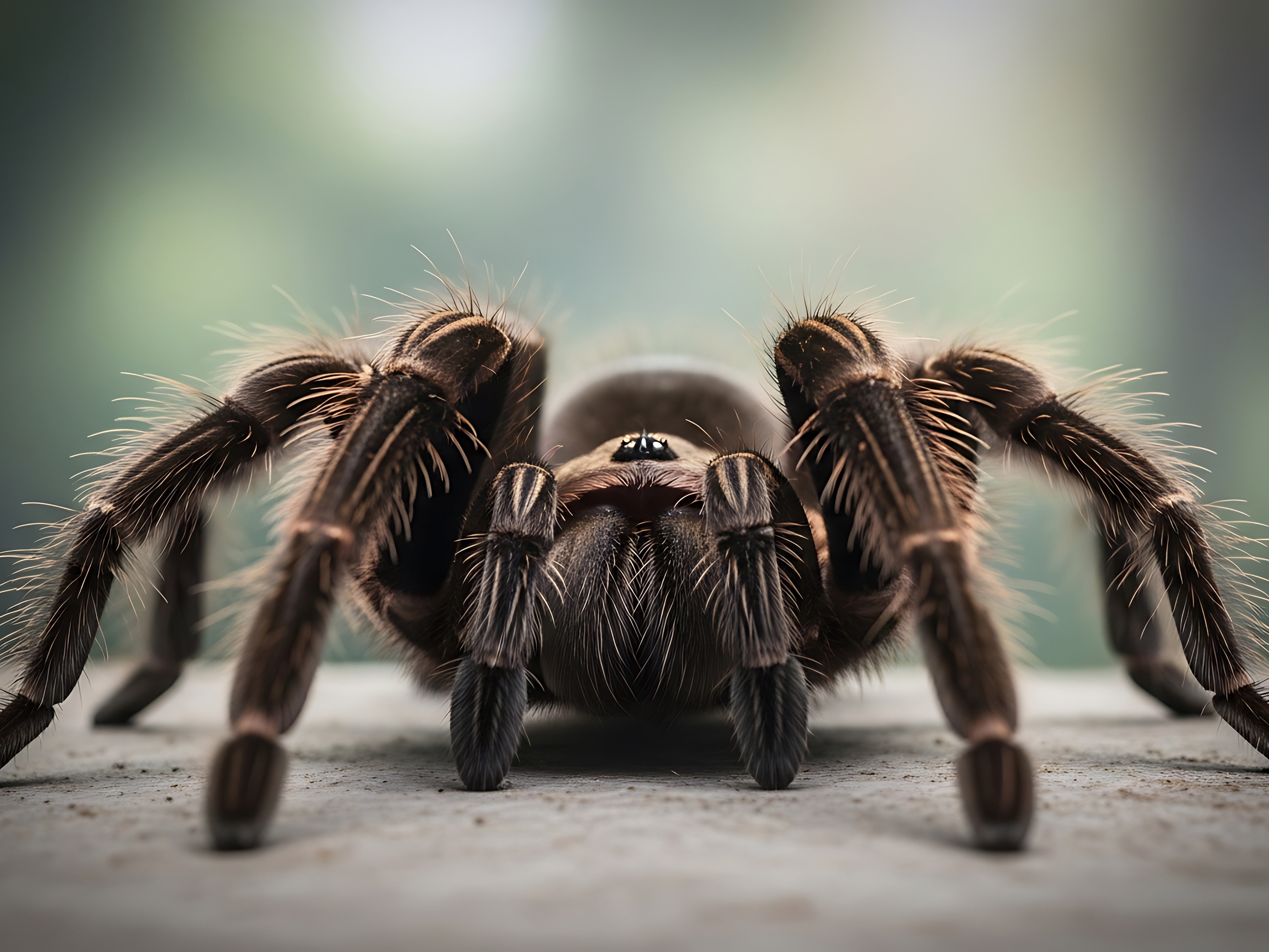
1,500 Tarantulas Found Hidden in Cake Boxes
By Nikki Thrace. Aug 23, 2025
Imagine expecting a sweet shipment of chocolate sponge cakes and instead uncovering a writhing mass of live tarantulas. This unsettling scene unfolded at Cologne Bonn Airport in Germany, where customs officials intercepted a 15-pound package from Vietnam that concealed around 1,500 baby tarantulas inside plastic containers hidden within cake boxes. The discovery, made in late June 2025, sparked shock, intrigue, and some serious questions about illegal exotic pet trafficking and animal welfare.
The Unusual Discovery at Cologne Bonn Airport
Customs agents at Cologne Bonn Airport were alerted by an unusual odor coming from a shipment that was supposed to contain chocolate sponge cakes. The smell did not match what one would expect from confectionery treats, prompting a closer inspection. What they found was extraordinary: about 1,500 young tarantulas, each housed in small plastic containers, cleverly concealed inside the cake boxes. Jens Ahland, a spokesperson for the Cologne customs office, said his colleagues are regularly surprised by the contents of prohibited packages from around the world, but the sheer number of tarantulas stunned even the most experienced among them, as reported by PEOPLE.
Loading Tweet...
Why Smuggle Tarantulas in Cake Boxes?
The motive behind this bizarre smuggling attempt appears to be profit-driven illegal trafficking of exotic pets. Tarantulas are popular among collectors and enthusiasts, but their trade is often regulated or prohibited due to concerns about species conservation and animal welfare. Smuggling live animals in food packaging is a deceptive tactic to evade customs inspections and bypass animal welfare regulations.
According to the Associated Press, the individual suspected of orchestrating this smuggling operation is reportedly located in the Sauerland region, east of Cologne Bonn Airport. Criminal proceedings are ongoing against this suspected smuggler, focusing on violations such as failure to pay the required import fees and improper customs declarations. These legal actions underscore the seriousness with which German authorities regard this case.
The Animal Welfare Implications
Unfortunately, many of the tarantulas did not survive the journey. The shipment conditions were likely unsuitable for the delicate creatures, raising significant animal welfare concerns. German animal-welfare laws prohibit such treatment, and the seizure is being investigated as a suspected violation of these regulations. The surviving tarantulas were reportedly transferred to expert handlers to ensure their care and well-being.
This case highlights the darker side of the exotic pet trade, where animals are often subjected to cruel and inhumane conditions purely for financial gain. It also serves as a reminder of the challenges customs officials face in protecting wildlife and enforcing regulations designed to prevent animal cruelty and preserve biodiversity.
What This Means for You and the Wider Community
For the average person, this story might seem like a strange curiosity, but it carries broader implications. It reveals the lengths smugglers will go to traffic exotic animals and emphasizes the importance of vigilant customs enforcement. Moreover, it raises awareness regarding the ethical and legal issues surrounding the exotic pet trade, encouraging consumers to think twice before purchasing such animals.
In addition, this case serves as a cautionary tale about the risks involved in illegal wildlife trafficking. The devastating impacts on animal populations and ecosystems can be immense, often contributing to a decline in biodiversity. It also reminds us that behind every headline like this, there are living creatures subjected to suffering, and that protecting them requires ongoing vigilance and action.
Loading Tweet...
The Ongoing Investigation
German customs officials continue to investigate the case, assessing the shipment’s estimated value and pursuing legal actions against the suspected smuggler. The public release of images and details about the seizure aims to clarify this unusual smuggling method and help deter similar attempts in the future.
As authorities work to bring the responsible parties to justice, this incident acts as a stark example of the complex challenges in combating illegal wildlife trafficking. It highlights the critical role of customs officials in safeguarding both public safety and animal welfare. This situation calls for greater awareness and advocacy for stronger protective measures concerning wildlife.
Final Thoughts
The discovery of 1,500 tarantulas hidden inside chocolate cake boxes at a German airport is a gripping narrative that combines shock with serious reflections on the realities of illegal exotic pet trafficking. What appears as a bizarre occurrence is a stark reminder of significant issues related to animal welfare and criminal activity demanding our attention.
In the end, the tale might also stir a sense of curiosity regarding wider questions about the ethical dimensions of animal ownership. Next time you unwrap a sweet treat, be mindful of what could be lurking within. For those passionate about wildlife and animal rights, this case serves as a call to support stronger regulations and enforcement against illegal trade, safeguarding countless creatures at risk.
References: Authorities Investigate 1,500 Tarantulas Inside Cake Boxes at German Airport | German customs officials show images of hidden tarantulas after smuggling bust | German customs officers find 1,500 tarantulas hidden in spongecake boxes
Trending

Earn Massive Cash Back With This Card
Sponsored

Inside Job at Rosanna Scotto's Restaurant: $2.5M Vanishes
Jessie Stone

The Dumb Money Mistake You’re Probably Still Making
Sponsored

Adult Star Dead at 27 After 'Hard Year'
Nikki Thrace

These 14 Benefits Could Save Seniors Thousands
Sponsored

Rob Reiner and Wife Killed, Son Booked for Murder
Jessie Stone

Hero Stopped Bondi Beach Gunman
Emmanuel Tredway

Hugh Jackman Recalls Singing Karaoke With Neil Diamond
Della Grant

3 McKinney Grandmas Share Wisdom at 'Grandma Stand'
Emmanuel Tredway

Groom Accepts $160K Settlement After Bride's Tragic DUI Crash
Jessie Stone

4 Dead Cats Found in Freezer
Nikki Thrace

Accused Smirks as Death Penalty Looms in Kirk Case!
Emmanuel Tredway

Ex-Wife, Lover Charged in Truck Driver Murder
Jessie Stone

Eight Teen Players Arrested Before Title Game
Emmanuel Tredway

Melissa Bourassa Wins $12,000 Jackpot After Beating Cancer
Jessie Stone

U-Haul Explosion Rocks Lewiston: One Dead, Businesses Damaged
Emmanuel Tredway

Woman Gives Birth in Carl's Jr. Parking Lot
Nikki Thrace

They Met at Dawn: How a Home Depot Ring Worked
Emmanuel Tredway

Houston Attorney Killed Over Filet-O-Fish
Nikki Thrace

Hero NYPD Detective Saves Choking Baby in Rush-Hour
Emmanuel Tredway

Husband Charged in Murder of Ex-Miss Switzerland Finalist
Nikki Thrace

FL Dad Allegedly Shoots Son Over Lack of Visiting
Jessie Stone

Mother Stabbed While Changing Baby's Diaper at Macy's
Jessie Stone

Michigan Football Coach Arrested After Firing
Emmanuel Tredway